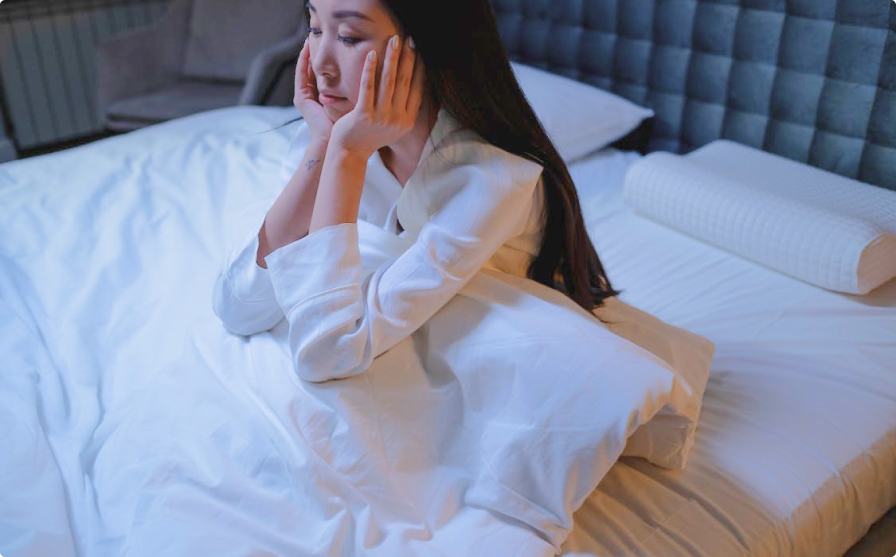
SLEEP DIAGNOSTICS
Optimizing Your Sleep Environment
If you are having trouble sleeping, the last thing you need is environmental stimuli interfering with your sleep. Here are a few basic tips to optimize your sleep environment:
First, make sure that your room is as dark as possible. Remove any lights and get heavy curtains or blinds to eliminate outside light. This applies to your pre-bedtime routine too: it is a good idea to dim your lights and avoid bright fluorescent lights at night. The reason for this is that darkness stimulates melatonin secretion, which is the hormone that promotes sleep.
Next, make sure your room is quiet: eliminate noise coming into your room as much as you can. Of course, some noises, such as neighbours and traffic, are outside of your control. If these noises disrupt your sleep, consider investing in a white sound machine to make the sound that is present in your room more consistent. Inconsistent noises are often the cause of sleep disruption.
Room temperature can also affect your sleep. Studies have shown that the ideal sleep temperature is neither too hot or too cold, as the optimal temperature range is between 16-21 C. Make sure you set your room temperature to one that facilitates good sleep.
People’s preferences in mattresses and how well they sleep on different surfaces vary widely. Make sure that your bed is comfortable. Try to find a mattress that is comfortable for you and make your bedroom as comfortable as possible.
Although sleeping with pets brings many people joy, some people experience disturbed sleep as a result of allowing their pet in their bedroom at night. Like humans, animals have a circadian rhythm, so try to keep a consistent bedtime routine so that your pet is in sync with you.
In addition to these obvious environmental factors, other aspects of your sleeping situation can also play a role in how well you sleep. To the extent possible, you want to clean clutter from your room that can serve as potential distractions.
Avoid working or watching TV in your sleeping environment, as well as the use of any electronics. If you use your phone as a clock or an alarm, consider buying a clock specifically designed for that purpose and leave your phone out of your bedroom.
It is a good idea to assess your own sleep environment and determine if you need to make some changes to it, as they can significantly improve your sleep.



